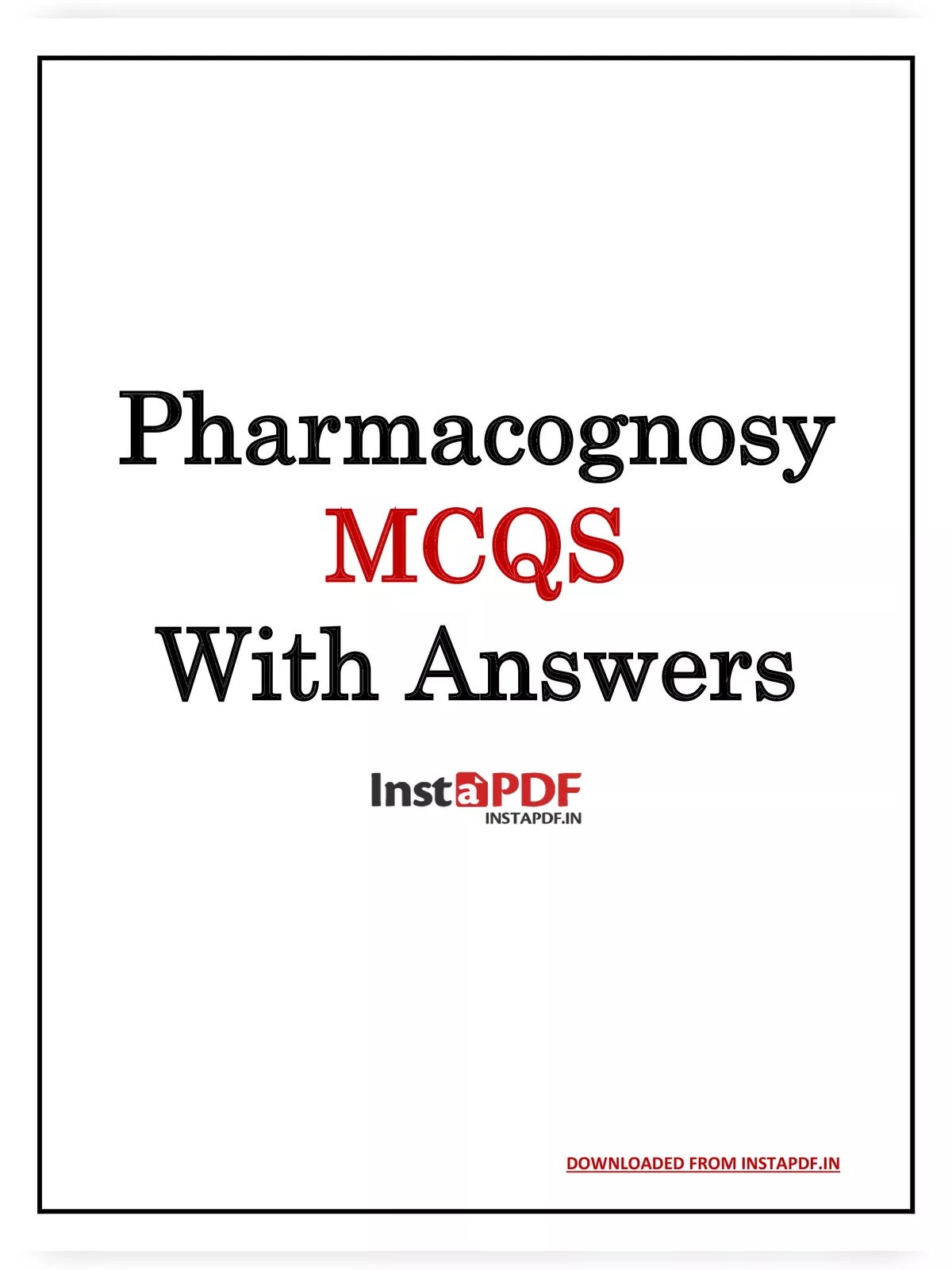Pharmacognosy MCQs with Answers - Summary
Pharmacognosy MCQs with Answers is an important resource for students studying the natural sources of medicines. Pharmacognosy is the study of medicines or crude drugs derived from natural sources such as plants, microbes, and animals. This discipline includes the analysis of their biological, chemical, biochemical, and physical properties. Students who are looking for the Pharmacognosy MCQs with Answers PDF can easily download it from the link provided at the bottom of this page.
What is Pharmacognosy?
Pharmacognosy involves several aspects, including the identification, physicochemical characterization, cultivation, extraction, preparation, quality control, and biological assessment of drugs. The term “pharmacognosy” was introduced by Anotheus Seydler, a German botanist, combining the Greek words “pharmakon,” which means drug or medicine, and “gnosis,” meaning knowledge.
Pharmacognosy Multiple Choice Questions With Answers
Aloe belongs to the family of
(A) Polygonaceae
(B) Liliaceae
(C) Euphorbiaceae
(D) None of the Above
Rhubarb is obtained from the rhizome of
(A) Ricinus c
(B) Aloe barbadensis
(C) Rheum Palmatum
(D) None of the Above
Rhubarb belongs to the family of
(A) Polygonaceae
(B) Liliaceae
(C) Euphorbiaceae
(D) None of the Above
Which part of rhubarb is used?
(A) Leaves
(B) Bark
(C) Juice
(D) Rhizome
Rhubarb contains
(A) Anthraquinone derivatives
(B) Mucilage
(C) Barbaloin
(D) None of the Above
Castor oil is obtained from the seeds of
(A) Plantago ovata forskal
(B) Ricinus communis
(C) Rheum Palmatum
(D) None of the Above
Castor oil belongs to the family of
(A) Polygonaceae
(B) Liliaceae
(C) Euphorbiaceae
(D) Plantaginaceae
Castor oil contains
(A) Ricinoleic acid
(B) Gallic acid
(C) Cinnamic acid
(D) None of the Above
Ispaghula is obtained from the dried seeds of
(A) Plantago ovata forskal
(B) Ricinus communis
(C) Rheum Palmatum
(D) None of the Above
Ispaghula belongs to the family of
(A) Scrophulariaceae
(B) Euphorbiaceae
(C) Plantaginaceae
(D) Polygonaceae
Download the Pharmacognosy MCQs with Answers PDF using the link given below.
